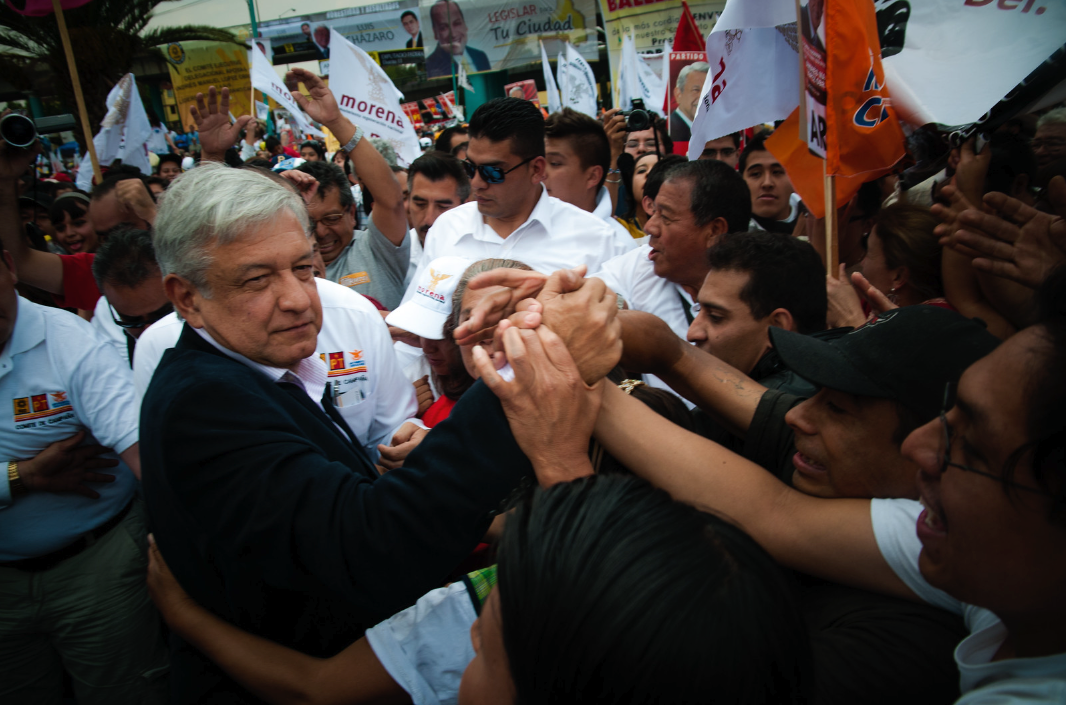To speak of democracy in these times is to talk about its crises. And, when we refer to these, the word so much in vogue recently quickly jumps into the debate: populism. Yes, populism has become popular. Populists are popular. They represent with deep conviction — sometimes with a worrying radicalism — the malaise of a society that finds no solution in the face of “sensible” or “reasonable” options, and places its faith — because the populist demands, above all, faith — in leaders with messianic speeches. However, we dwell too much on that picture of the leader with open arms, ceasing to belong to himself, and not so much on those beings who surround him and follow him faithfully because the populist demands, also, fidelity.
Identifying with the leader is not only a question of ideology or clientelism but of trajectory. Leaders like Mexican President Andrés Manuel López Obrador, coming from humble areas, with humble appearance and humble language, represent the story of so many in Mexico. Because his biography is the biography of many: men and women dissatisfied with a system that has failed them; enemies, imaginary and real, to fight against; victories and defeats that have left their mark. In a society lacking enthusiasm, the need for a populist leader — a biography, an autobiography to represent — becomes the only hope to transcend, becomes The Hope of Mexico, as was AMLO’s campaign slogan in 2018.
Populism, notes Italian-American political scientist Nadia Urbinati, is “extreme majoritarianism.” Its people, not because they belong to it but because they limit it to their vision, are not only the only ones but the authentic ones. If the state has a monopoly on force, it also seeks a monopoly on narrative. The only biography that matters is that of the leader — that is, of the “people”. Hence, anyone who disputes that narrative is labeled an enemy. But, unlike fascism, populism does not eliminate its adversaries, on the contrary: it feeds them, it needs them. On the one hand, there is the legitimacy that the populist leader receives from his followers — from his voters because populism sustains this legitimacy democratically, and, on the other hand, that of the enemies: without them, populism is left without those responsible for its failures, and a populist who accepts his mistakes is not a populist.
Among the usual enemies of populism are the media, autonomous organizations, and any counterweight that may arise. What is worrisome is not only that the populist leader in power attacks and questions those critics of his government, often through false accusations, but that this is transferred to his followers. Recent work on López Obrador’s followers shows that they are more likely to censor the media. Identifying themselves as part of the people responds, in the same way, to the sympathy they feel, or not, for the president. For López Obrador, the only legitimate reality is the one he names: the media that question him want to harm him; the autonomous institutions and organizations attempt against his so-called Fourth Transformation; the environmentalist, feminist, intellectual groups, etc., are the product of neoliberalism and the elites that so much seek to affect his government. As it has always been, the narrative struggle is a struggle of fiction; a battle to belong to a fiction; a conflict of languages: we speak Pejeñol (a combination of “El Peje”, as AMLO is also known, and “Español”), has written Mexican journalist and writer Jesús Silva Herzog.
Despite the mismanagement of the pandemic, the violence, and the deterioration of the health system, among other problems faced by López Obrador’s government, the president retains a high level of popularity. Although several social programs have been implemented that suggest the reason for the president’s esteem, one would think that, given the various failures of his administration, his popularity would be in question at this point. However, as of early May of this year, around 60% approve of the president, and this with questionable results.
What happens when a populist achieves results in fundamental matters for society? What happens when the populist not only gets the diagnosis right but is effective in solving it? Or, even more complicated, what happens when a populist, with strong authoritarian tendencies, is effective? Such is the case of Nayib Bukele, president of El Salvador, who, through a populist and severely authoritarian profile, has built a narrative based on effectiveness, as demonstrated in his fight against gang violence that has done so much damage to the Central American country. Despite the multiple national and international questionings of the measures that the Salvadoran president has carried out, his enormous popularity is unquestionable.
In a society where a representative discourse is not enough, effectiveness becomes the only possible way to represent. The fact that President Bukele has gone over the Constitution of his country to be reelected, that he has stormed the Congress accompanied by the military or that he harasses any critic of his government is not enough to counteract the results and effectiveness he has demonstrated. “Efficiency”, as the Argentine writer Martín Caparrós calls it. How to talk about democracy to a society devastated by violence like the Salvadoran one? How to point out that the populist path is not the ideal one if the path that precedes it was, precisely, the one that provoked it? And these questions point, more than to answers, to more questions: to whom does the academy speak? Does it not fall into a kind of collective monologue? At the same time, different media, more than warning, label as populist any political actor they dislike. Although many do not like it, populists are popular and, without falling into the same populist dynamics, it is necessary, more than ever, to listen to them, to take them seriously, before this type of leadership becomes more appreciated and popular than democracy itself.
*Translated by Janaína Ruviaro da Silva from the original in Spanish.












